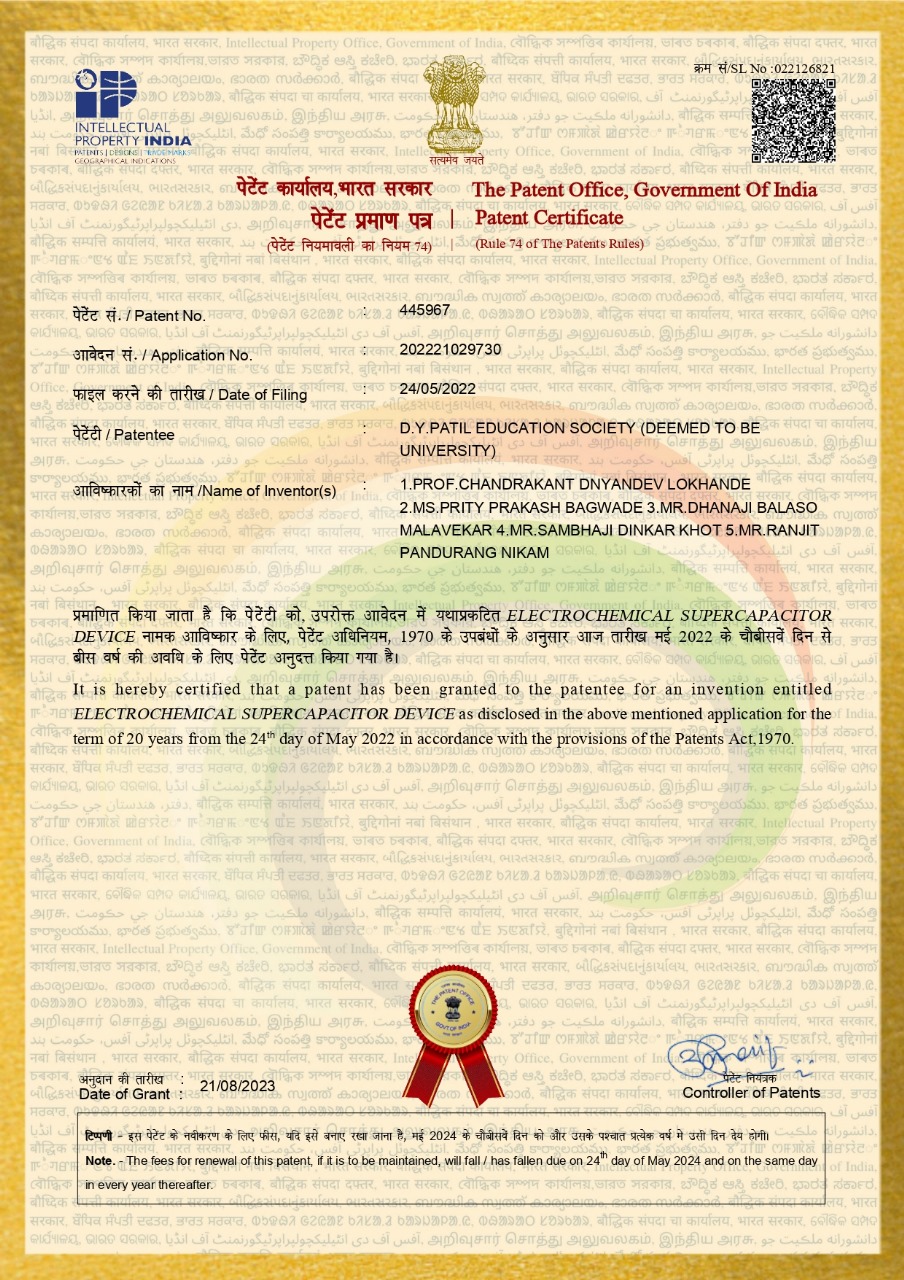- About Course
- Brochure
- Programm Outcome (PO)
- Course Outcomes (CO)
- Syllabus
M. Sc. Physics
Choice Based Credit SystemIn recent years, along with the Physics, its application in biomedical field becomes one of the most important and forefront fields. The application of Physics to life/ medical science has opened entire new branch of Physics in biomedical applications. The branch holds the promise of many breakthroughs that may possibly change the course of future medical advances and our insight. It has been observed that properties such as electronic structure, reactivity, conductivity, melting temperature, optical properties and mechanical properties change as the particles become smaller than a critical size. This dependence of property on size allows for the engineering of nanostructures with varied properties with applications in producing stronger and lighter materials for advanced drug delivery system, tailor-made therapy in pharmaceuticals, piezoelectric materials for wound healing, magnetic materials for hyperthermia, the focused impendence spectroscopy for diagnosis, Materials for Implant Applications, Biomedical Instrumentation, Biosensors, Medical Imaging Techniques, development of multifunctional nanoparticles for cancer therapy, magnetic resonance imaging, DNA transfection, and enzyme immobilization, etc are few of the prominent thrust areas of Applied Physics in Medical applications.
Masters Program in Physics (Solid state Physics) will provide students to understand the current concepts and prospect of world of Medical Instrumentation for diagnosis, Nanoscience with hands-on experience for treatment of various diseases. The course structure and the syllabi has been tailor made with the aim to enable the student acquire a holistic and inter-disciplinary view of the subjects and their inter-relationship along with the application of the knowledge gained in one course on another. This Program would prepare the students for research in application of Physics in technological and biomedical field by opening more job opportunities.
PHY-02- Vision Mission and Goal
Vision:
To be a world-class centre of academics and research in physics specifically in by pursuing interdisciplinary ties for the benefit of nation and masses at large.
Mission:
To promote academic growth by offering state-of-the-art postgraduate program in the field of Physics
Goals:
To develop overall excellence in student that meet international standard.
To enable the interdisciplinary research through the Physical sciences, Medical Sciences, Chemical sciences and Engineering discipline.
To develop state-of-art resource centre in Physics and education hub.
To provide solutions for industry through technology transfer and contribute to social as well as country economic growth
| PO1 | Knowledge and Skills |
| PO2 | Planning and Problem-solving abilities |
| PO3 | Communication |
| PO4 | Research Aptitude |
| PO5 | Professionalism and Ethics |
| PO6 | Leadership |
| PO7 | Societal Responsibilities |
| PO8 | Environment and Sustainability |
| PO9 | Lifelong Learner |
PO1: Possess knowledge of Basics Nuclear & Radiation Physics, Mathematical Physics, Solid State Physics, Semiconductor Devices and Electrodynamics
PO2: Demonstrate an ability to apply the knowledge acquired through the state-of-the art, students get skilled with logical thinking in steps, formulating model systems and solving problems.
PO3: Become good communicators with satisfactory number of presentations and group discussions, which develop communication skills to communicate effectively in interviews, colleagues, industries, academia for collaborative research by explaining their ideas with good interpersonal and workplace-based skills.
PO4: Students will get the lessons of research and development during their project work, assignments. During project work, group discussion and laboratory class pupils get nurtured to become a team member and to stand beside the others with fellow feeling in need.
PO5: Develop understanding and implementation of ethics in profession, research, society, and workplace.
PO6: Develop leadership skills, to work effectively and efficiently, logical reasoning, time management, values required for self- directed and lifelong learning, soft skills for professional development and execute their professional roles in society.
PO7: Develop character with good moral values, human values, good social behavior, gratitude, honesty, ethics, safety, hygiene, responsibility, confidence, tolerance and critical thinking.
PO8: Contribute in environment and sustainable development to achieve the national sustainable development goals.
PO9: Lifelong learning in Physics Stream.
Course Outcomes (CO)
Paper I: PHY 101: Mathematical Physics
At the end of the course student should,
Paper II: PHY 102: Solid State Physics-I
At the end of the course student should,
Paper III: PHY 103: Semiconductor devices
At the end of the course student should,
Paper IV: PHY 104: Classical and Quantum Mechanics
At the end of the course student should,
Paper V: PHY 201: Electrodynamics
At the end of the course student should,
Paper VI: PHY 202: Nuclear Physics
At the end of the course student should,
Paper VII: PHY 203: Radiation Physics.
At the end of the course student should,
Paper IX: PHY 301 Classical and Quantum Mechanics II
After completion of the course students will be able to

